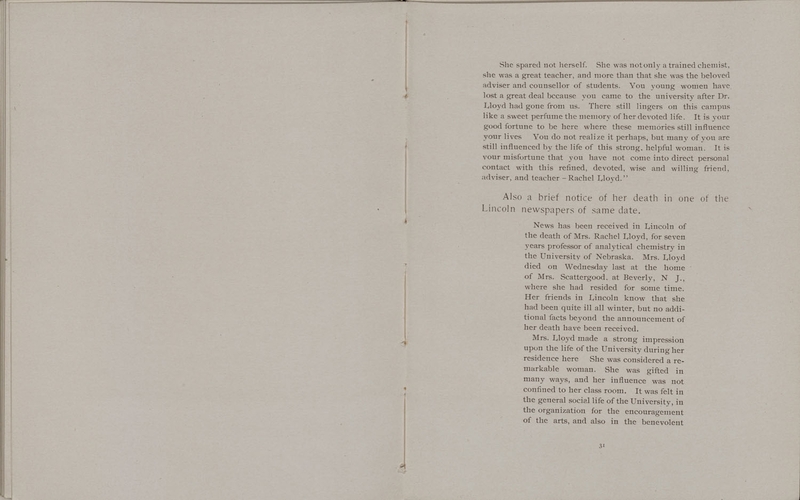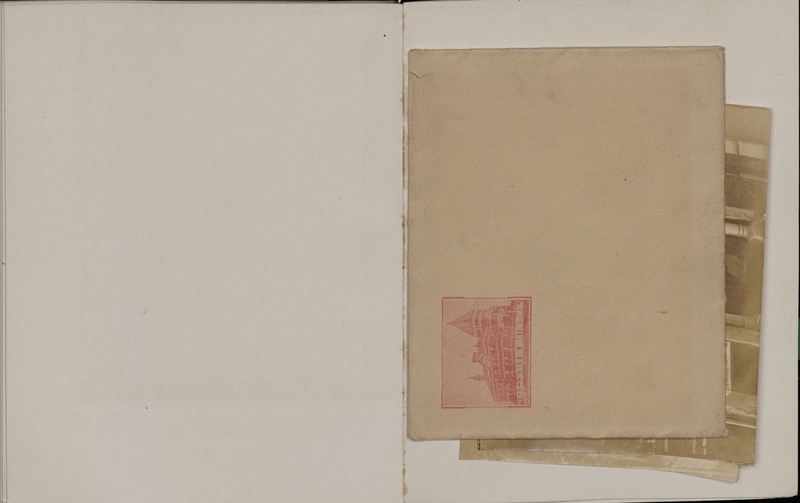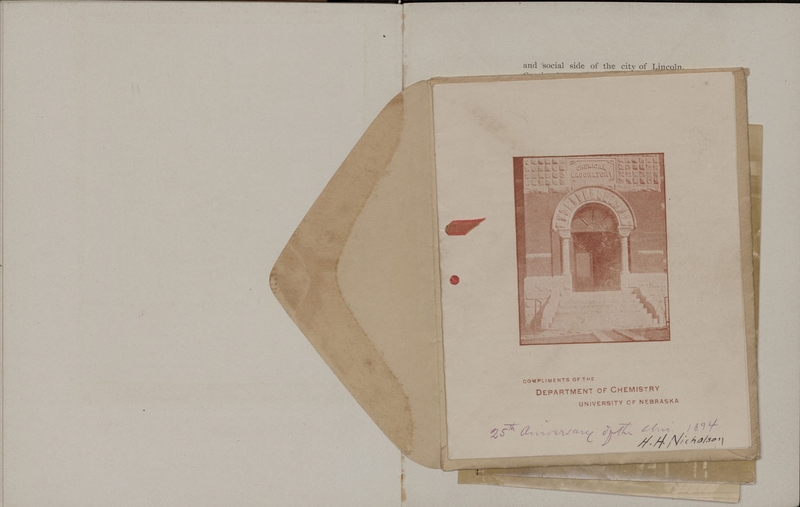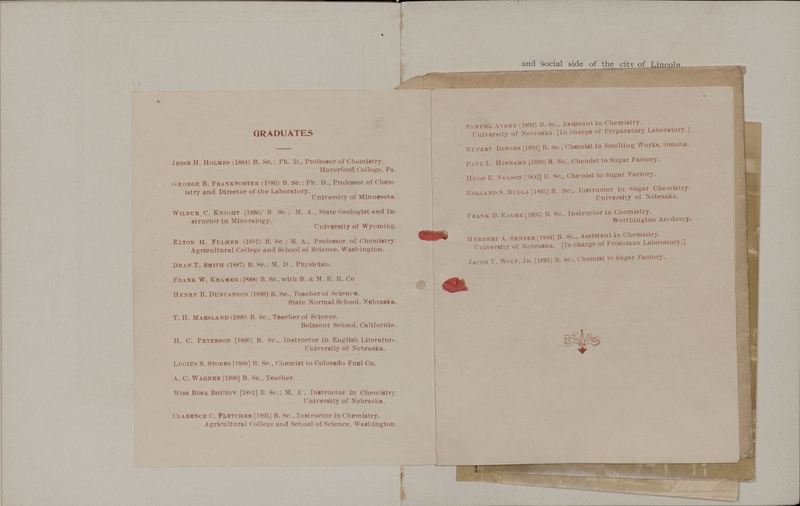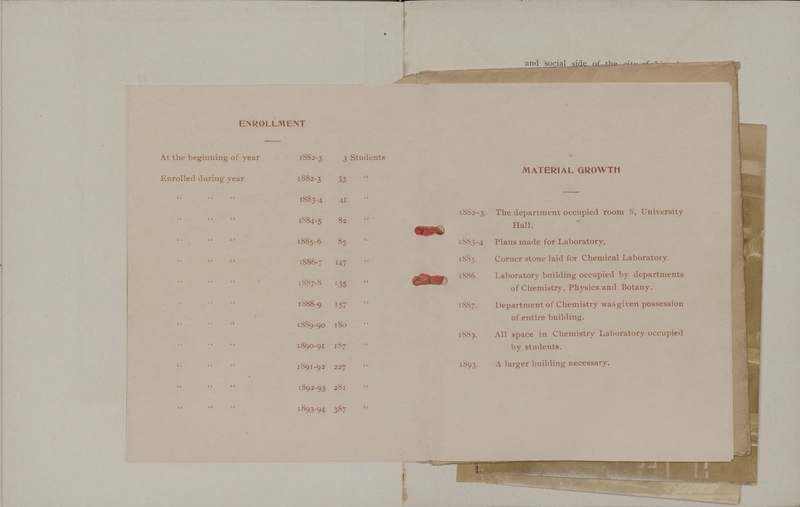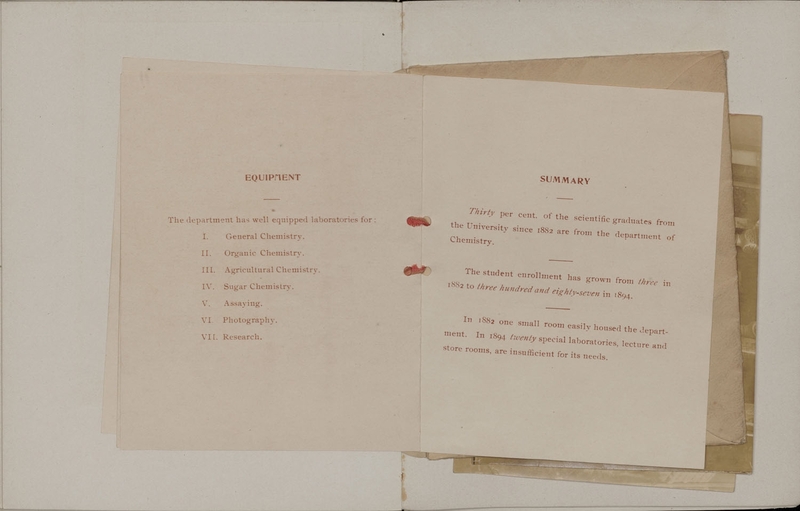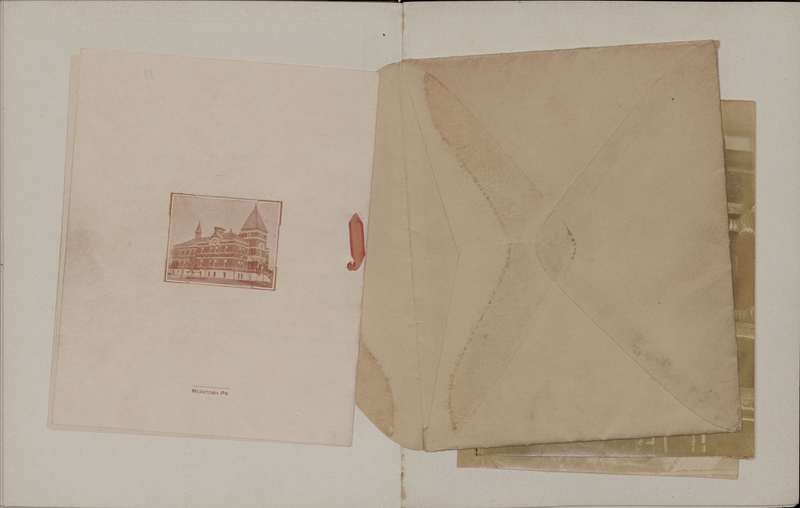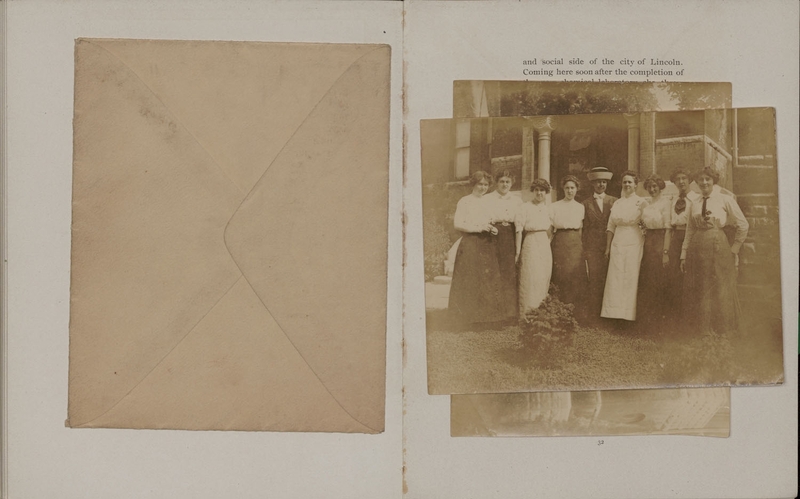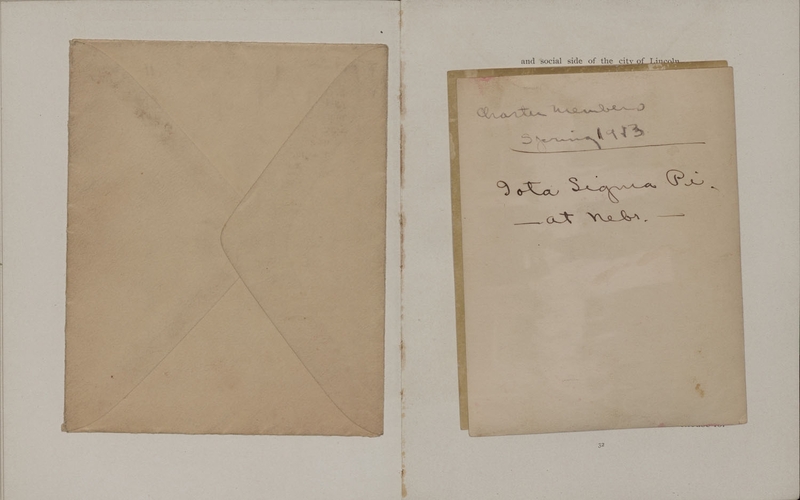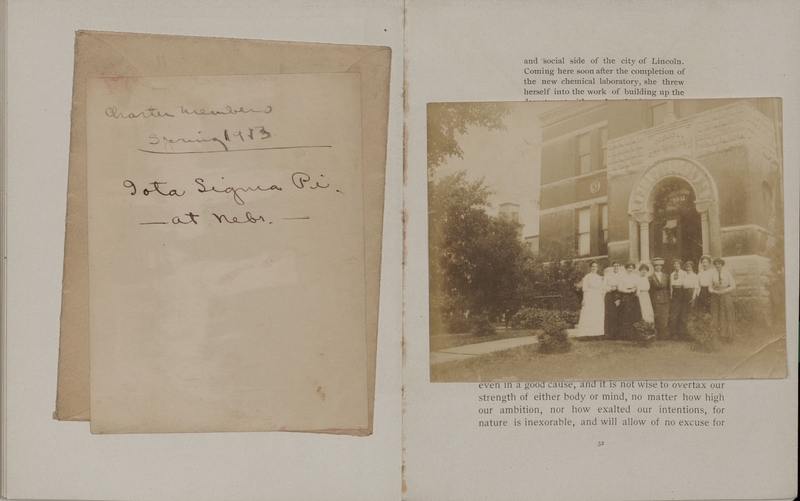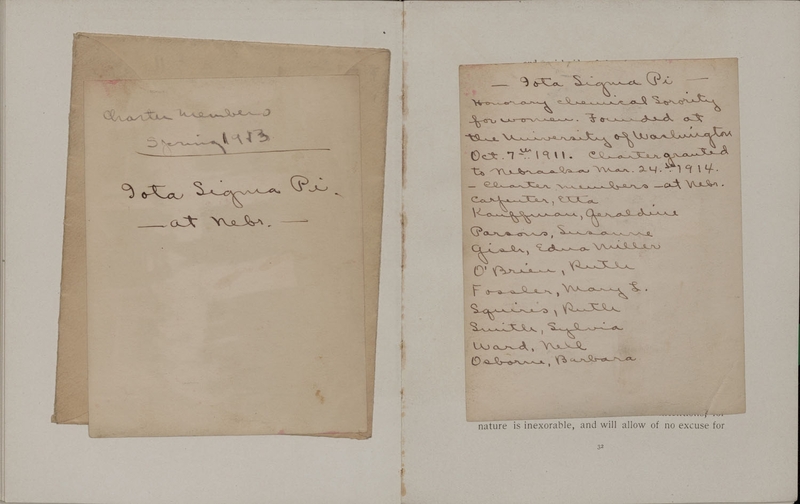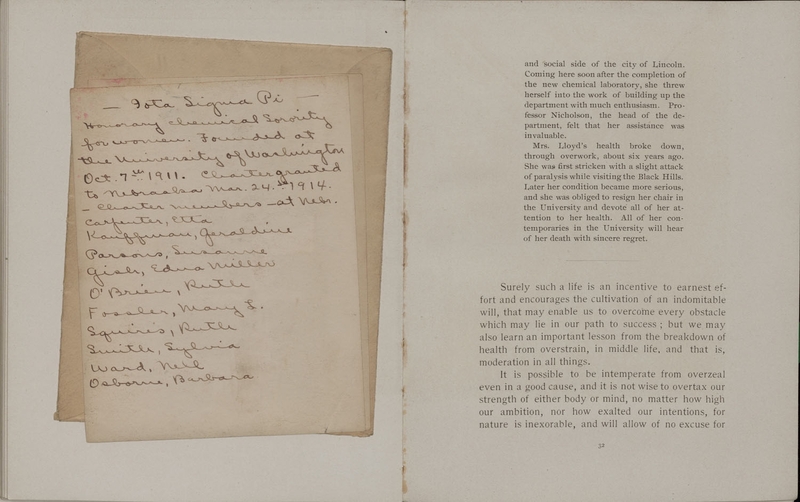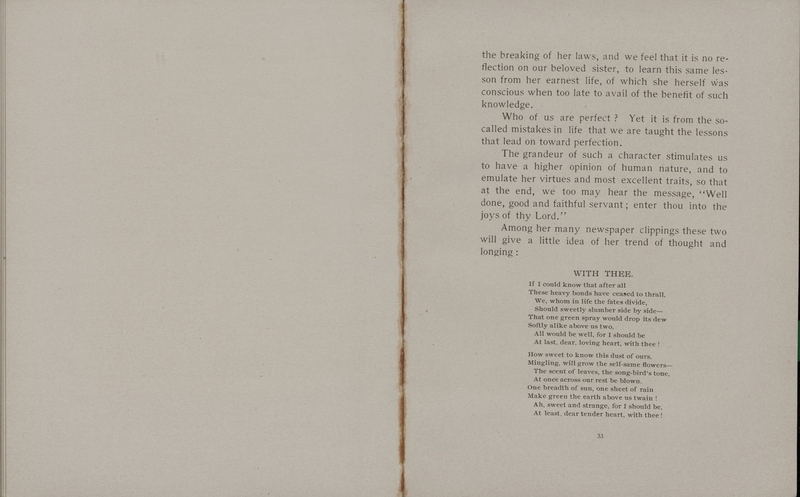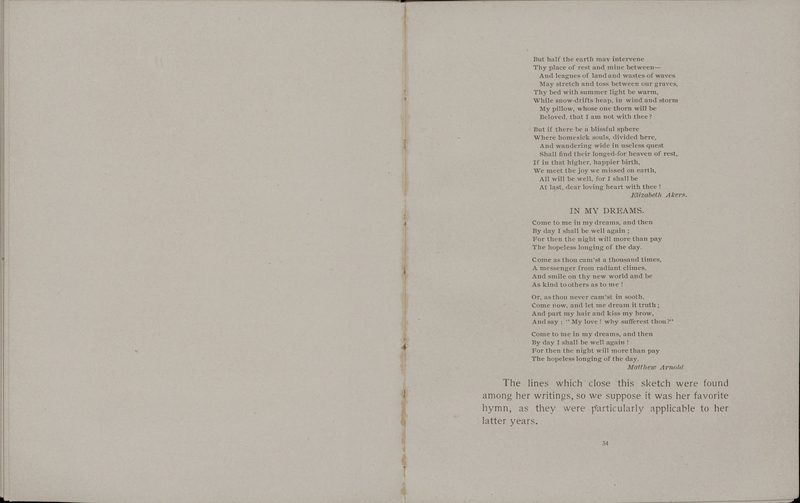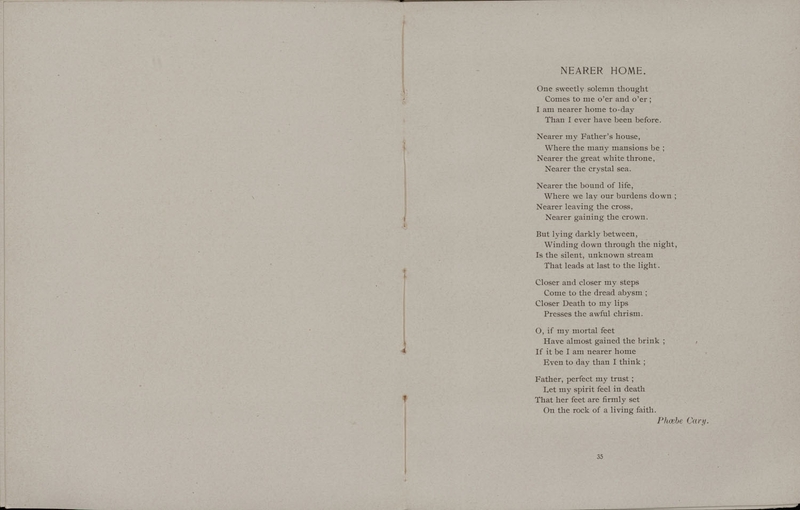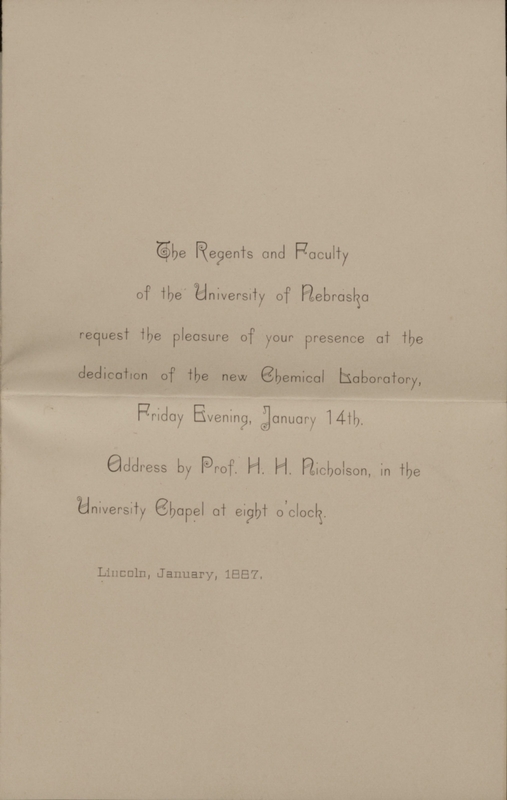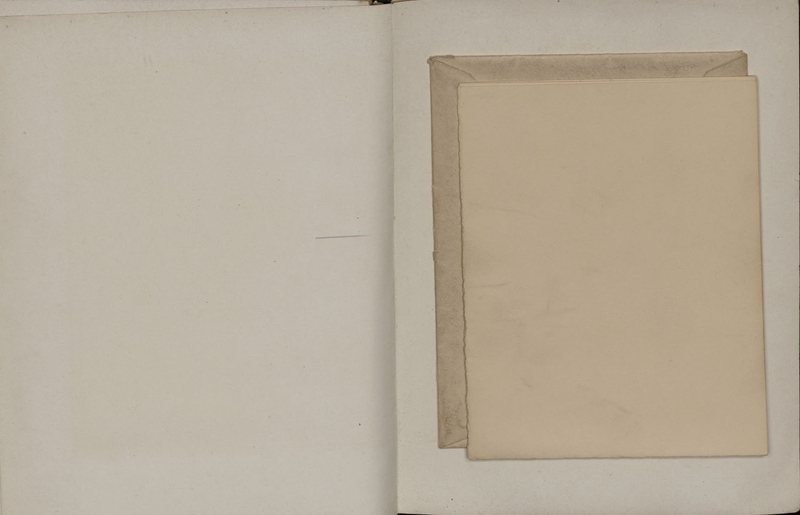She spared not herself. She was not only a trained chemist, she was a great teacher, and more than that she was the beloved adviser and counsellor of students. You young women have lost a great deal because you came to the university after Dr. Lloyd had gone from us. There still lingers on this campus like a sweet perfume the memory of her devoted life. It is your good fortune to be here where these memories still influence your lives[.] You do not realize it perhaps, but many of you are still influenced by the life of this strong, helpful woman. It is your misfortune that you have not come into direct personal contact with this refined, devoted, wise and willing friend, adviser, and teacher — Rachel Lloyd."
Also a brief notice of her death in one of the Lincoln newspapers of same date.
News has been received in Lincoln of the death of Mrs. Rachel Lloyd, for seven years professor of analytical chemistry in the University of Nebraska. Mrs. Lloyd died on Wednesday last at the home of Mrs. Scattergood, at Beverly, N J., where she had resided for some time. Her friends in Lincoln know that she had been quite ill all winter, but no additional facts beyond the announcement of her death have been received.
Mrs. Lloyd made a strong impression upon the life of the University during her residence here[.] She was considered a remarkable woman. She was gifted in many ways, and her influence was not confined to her class room. It was felt in the general social life of the University, in the organization for the encouragement of the arts, and also in the benevolent
Page Inserts
and social side of the city of Lincoln. Coming here soon after the completion of the new chemical laboratory, she threw herself into the work of building up the department with much enthusiasm. Professor Nicholson, the head of the department, felt that her assistance was invaluable.
Mrs. Lloyd's health broke down, through overwork, about six years ago. She was first stricken with a slight attack of paralysis while visiting the Black Hills. Later her condition became more serious, and she was obliged to resign her chair in the University and devote all of her attention to her health. All of her contemporaries in the University will hear of her death with sincere regret.
Surely such a life is an incentive to earnest effort and encourages the cultivation of an indomitable will, that may enable us to overcome every obstacle which may lie in our path to success; but we may also learn an important lesson from the breakdown of health from overstrain, in middle life. and that is, moderation in all things.
It is possible to be intemperate from overzeal even in a good cause, and it is not wise to overtax our strength of either body or mind, no matter how high our ambition, nor how exalted our intentions, for nature is inexorable, and will allow of no excuse for
the breaking of her laws, and we feel that it is no reflection on our beloved sister, to learn this same lesson from her earnest life, of which she herself was conscious when too late to avail of the benefit of such knowledge.
Who of us are perfect? Yet it is from the so called mistakes in life that we are taught the lessons that lead on toward perfection.
The grandeur of such a character stimulates us to have a higher opinion of human nature, and to emulate her virtues and most excellent traits, so that at the end, we too may hear the message, "Well done, good and faithful servant; enter thou into the joys of thy Lord."
Among her many newspaper clippings these two will give a little idea of her trend of thought and longing:
WITH THEE.
If I could know that after all These heavy bonds have ceased to thrall. We, whom in life the fates divide, Should sweetly slumber side by side— That one green spray would drop its dew Softly alike above us two. All would be well, for I should be At last, dear, loving heart, with thee!
How sweet to know this dust of ours. Mingling, will grow the self-same flowers— The scent of leaves, the song-bird's tone, At once across our rest be blown. One breadth of sun, one sheet of rain Make green the earth above us twain! Ah, sweet and strange, for I should be, At least, dear tender heart, with thee!
But half the earth may intervene Thy place of rest and mine between— And leagues of land and wastes of waves May stretch and toss between our graves Thy bed with summer light be warm, While snow-drifts heap, in wind and storm My pillow, whose one thorn will be Beloved. that I am not with thee?
But if there be a blissful sphere Where homesick souls, divided here, And wandering wide in useless quest Shall find their longed-for heaven of rest. If in that higher, happier birth, We meet the joy we missed on earth, All will be well. for I shall be At last, dear loving heart with thee! Elizabeth Akers.
IN MY DREAMS.
Come to me in my dreams, and then By day I shall be well again; For then the night will more than pay The hopeless longing of the day.
Come as thou cam'st a thousand times, A messenger from radiant climes. And smile on thy new world and be As kind to others as to me!
Or, as thou never cam'st in sooth, Come now, and let me dream it truth; And part my hair and kiss my brow, And say: My love! why sufferest thou?"
Come to me in my dreams, and then By day I shal1 be well again! For then the night will more than pay The hopeless longing of the day.
Matthew Arnold
The lines which close this sketch were found among her writings, so we suppose it was her favorite hymn, as they were particularly applicable to her latter years.
NEARER HOME
One sweetly solemn thought Comes to me o'er and o'er; I am nearer home to-day Than I ever have been before.
Nearer my Father's house, Where the many mansions be; Nearer the great white throne, Nearer the crystal sea.
Nearer the bound of life, Where we lay our burdens down; Nearer leaving the cross. Nearer gaining the crown.
But lying darkly between, Winding down through the night, Is the silent, unknown stream That leads at last to the light.
Closer and closer my steps Come to the dread abysm; Closer Death to my lips Presses the awful chrism.
0, if my mortal feet Have almost gained the brink; If it be I am nearer home Even to day than I think;
Father, perfect my trust; Let my spirit feel in death That her feet are firmly set On the rock of a living faith.
Phoebe Cary.

